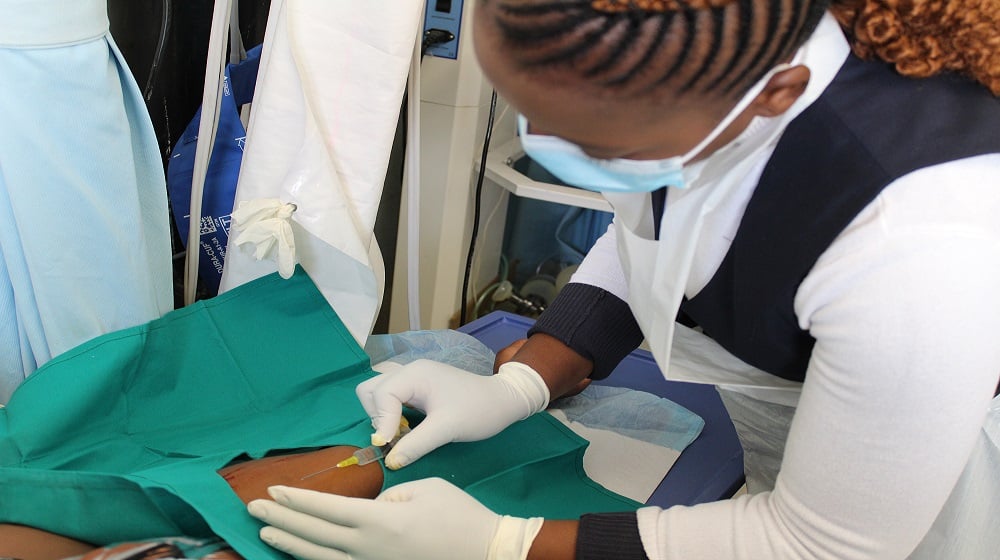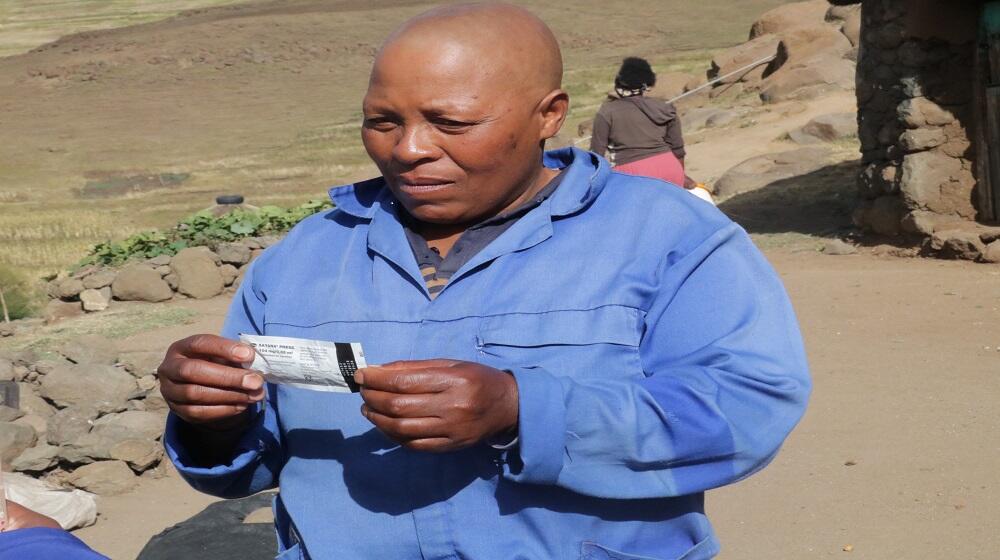For some women in Lesotho, the decision to have children, or when to have them, is no longer a question of fate but a choice they can actively make.
At the heart of this transformation lies a simple yet powerful tool: contraceptives. According to the Lesotho Demographic Health Survey 2024, the unmet need for family planning has decreased from 18% to 13%. This statistic, although still high, represents a significant step forward for many women who have historically faced barriers in accessing reproductive health services and commodities. Women in Lesotho often express gratitude for the availability of contraceptive options, such as the Depo-Provera injection, which is popular among them and allows them to plan pregnancies and avoid unplanned parenthood.
"Without the contraceptives, my partner and I would most likely have had an unplanned child," says 19-year-old Makhethisa Sebajoa, her voice filled with conviction. "I want to be pregnant when I want, not by mistake." Her testimony illuminates the mind-set of a new generation of women who are increasingly aware of their reproductive rights and the importance of family planning.
 Championing the cause to ensure accessibility of contraceptives to even the remotest areas in all corners of Lesotho is UNFPA, the United Nations Population Fund along with its partners including the government. In Lesotho UNFPA, a United Nations agency that works to end the unmet need for family planning, amongst others, has supported development of Lesotho’s second Supply Chain Strategic Plan, to ensure that all women and girls have access to safe, voluntary family planning, which is recognized as a basic human right. This is because a strong and resilient supply management system improves availability and accessibility of modern contraceptive methods hence every woman can exercise the right to choose the method that is most suited to their needs and lifestyle.
Championing the cause to ensure accessibility of contraceptives to even the remotest areas in all corners of Lesotho is UNFPA, the United Nations Population Fund along with its partners including the government. In Lesotho UNFPA, a United Nations agency that works to end the unmet need for family planning, amongst others, has supported development of Lesotho’s second Supply Chain Strategic Plan, to ensure that all women and girls have access to safe, voluntary family planning, which is recognized as a basic human right. This is because a strong and resilient supply management system improves availability and accessibility of modern contraceptive methods hence every woman can exercise the right to choose the method that is most suited to their needs and lifestyle.
Speaking at the Strategic Plan’s validation workshop in August, UNFPA Representative to Lesotho, Mr. Innocent Modisaotsile, commended the Government of the Kingdom of Lesotho for its unwavering commitment to empowering women and men to make informed choices regarding family planning. He emphasized the significance of this commitment in enabling individuals to decide when to have children, how many they want, and how to space their pregnancies.
“This provision of choice is clearly articulated in the government’s Family Planning policy,” he noted, “and it is further supported by the government’s strong commitments, particularly in the procurement of family planning commodities.”
However, Mr. Modisaotsile noted that with an unmet need for family planning estimated at 13%, many women in Lesotho still face significant limitations in exercising their right to choose, especially in a country grappling with a high maternal mortality rate of 566 per 100,000 live births.
“We are acutely aware of the connection between unmet family plannin needs for family planning and maternal mortality. The chain reaction is clear: unmet need for family planning may leads to unintended and unwanted pregnancies, unsafe abortions, and preventable maternal deaths. These gaps are intrinsically linked to the supply chain system,” he stated.
He reaffirmed UNFPA’s unwavering commitment to strengthening the supply system in Lesotho, emphasizing its crucial role in addressing unmet need for family planning needs and reducing preventable maternal deaths. Additionally, he highlighted the importance of demand creation and raising awareness about available Sexual and Reproductive Health commodities and services.
At most health facilities, women often express gratitude for the availability of family planning services and contraceptives, with many opting for Depo-Provera, an injection administered every three months. In Mokhotlong district, where women must often walk for hours to reach a health facility due to the challenging terrain of the Maluti Mountains, some prefer the self-injectable Depo—commonly known as Sayana Press—as it allows them to self-administer every three months, saving time and money.
As the lead agency within the United Nations system for procuring sexual and reproductive health supplies, and the world’s largest public-sector procurer of contraceptives, UNFPA continues to ensure the availability of lifesaving sexual and reproductive health and HIV prevention commodities, even in the most remote areas of Lesotho. For UNFPA, ensuring access to safe, quality, and effective contraceptives, medicines, and equipment is not only essential to women’s reproductive health but is also central to achieving gender equality.


